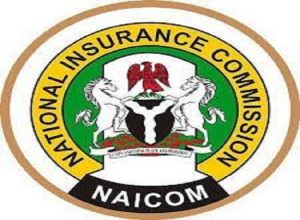NAICOM Issues Guidelines for Insurtech Operation

National Insurance Commission (NAICOM) has issued operational guidelines for Insurtech businesses in the country.
Insurtech leverages technology to transform and modernise the traditional insurance sector, revolutionising how policies are created, underwritten, and managed.
It also promotes greater customer engagement by offering personalised insurance products based on individual risk profiles and lifestyle choices.
The new guidelines, effective from August 1, 2025, are designed to provide a clear and unified regulatory framework for the licensing, operations, and supervision insurtech firms.
The framework seeks to foster innovation that can lead to the development of new and innovative insurance products and services.
It would in addition ensure consumer protection, improve consumer experience, prioritising consumer interests, providing better services, providing clarity on regulatory requirements, as well as reduce uncertainty and ambiguity.
NAICOM explained that the guidelines would help build trust and confidence in the Insurtech sector, driving growth and adoption as well as advance digital transformation within the Nigerian insurance sector.
Under the new framework, insurtech firms must comply with provisions related to risk management; investment practices; actuarial standards, outsourcing; and other key operational parameters as detailed in the commission’s prudential guidelines.
The commission said disputes between insurtechs and partner insurers must first follow arbitration protocols outlined in their agreements before approaching NAICOM.
Consumers may refer unresolved issues from insurance transactions directly to the commission for review and resolution.
NAICOM further mandated all existing insurance institutions and insurtech firms operating under any arrangement classified as insurtech to fully comply with these guidelines within 30 days of the effective date.
Basically, the key objectives of the guidelines include promotion of the growth and development of insurtech in the country as well as establishing regulatory standards for Insurtech setup and operations.
It also seeks to encourage responsible innovation while safeguarding consumer interests; define general product features specific to insurtech; provide a licensing structure for both partnering and standalone Insurtech firms, and facilitate the transition of eligible operators into fully licensed standalone Insurtech entities, among others.
The framework also sets application and eligibility criteria for prospective operators, stressing that NAICOM reserves the right to grant licenses with conditions deemed necessary under existing laws and this new regulatory framework.
According to the commission the guidelines would also help to build trust and confidence in the Insurtech sector, driving growth and adoption, as well as advancing digital transformation within the Nigerian insurance sector.
Additionally, key objectives of the guidelines include, “Promoting the growth and development of Insurtech in Nigeria; establishing regulatory standards for Insurtech setup and operations, and encouraging responsible innovation while safeguarding consumer interests.”
The document is also aimed at defining general product features specific to insurtech, providing a licensing structure for both partnering and standalone insurtech firms, facilitating the transition of eligible operators into fully licensed standalone Insurtech entities as well as supporting Nigeria’s broader digital economy and fintech ecosystem.
On application for the business, the commission said those eligible were partnering Insurtech, which were permitted to transact specific classes of insurance in collaboration with licensed insurers.
It added, “Standalone Insurtech which are permitted to transact the categories of insurance as may be specified in its license, excluding special risk products such as oil and gas insurance, marine and aviation insurance, retirement life annuity, and insurances of government assets and liabilities for Ministries, Departments, and Agencies.”
On institutions eligible for application, NAICOM stated, “Prospective operators must submit applications in accordance with the procedures outlined in schedule I of the guidelines. It said NAICOM reserves the right to grant licenses with conditions deemed necessary under existing laws and this new regulatory framework.”
